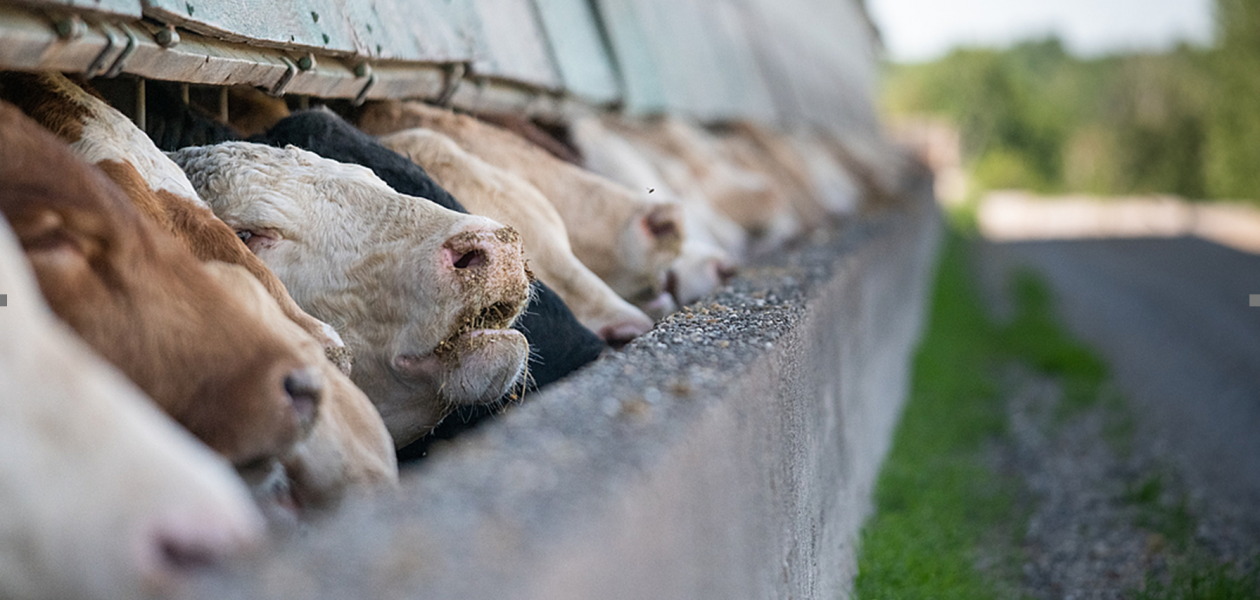
Yesterday, the EU and New Zealand concluded a political agreement on their future trade deal. While the content of the provisions on animal welfare cooperation is still unknown, Eurogroup for Animals strongly welcomes the introduction of an animal welfare-based condition in the tariff-rate quota opened for New Zealand beef.
New Zealand is the only trade partner to have very similar animal welfare standards to the EU’s. Yet, both Brussels and Wellington have issues when it comes to enforcing these standards. In 2020, Eurogroup for Animals described what was at stake for animals in these trade negotiations, calling for the inclusion of animal welfare-based conditions in the tariff reductions, and for an ambitious chapter on animal welfare cooperation.
The Sustainability Impact Assessment (SIA) in support of these negotiations, finalised in March 2020, confirmed that in any scenario, EU imports of beef and sheep meat would increase, stimulating the production of such meats in New Zealand with detrimental consequences for animals through the increase of water pollution and biodiversity loss.
“While the agreement still contains tariff-rate quotas for New Zealand beef and sheep meat, Eurogroup for Animals welcomes that the beef quota will be reserved to meat derived from animals fed with grass. The use of feedlots leads to huge animal suffering, such as respiratory and digestive diseases, and has a very detrimental impact on the environment. Feedlots are not banned, neither in the EU nor in New Zealand, but as trade agreements are made to last and as we recently witnessed discussions over the creation of two new feedlots in New Zealand, it is a crucial move to ensure EU-New Zealand trade does not stimulate this cruel method of production”, commented Reineke Hameleers, CEO, Eurogroup for Animals.
At the moment, details around the provisions on animal welfare cooperation are unknown. Hopefully, they will be ambitious and will ensure that both partners create a strong cooperation mechanism allowing them to learn from each others’ best practices and to jointly promote animal welfare at the global level. The EU and New Zealand could also exchange on how to address animal welfare in trade policy and at the WTO, especially as the EU is reviewing its animal welfare acquis and envisaging to include imports within the scope of this revision. New Zealand is facing similar challenges as it is trying to improve animal welfare standards in its pig sector.
Notes
Briefing: New Zealand. Animal Protection in EU Trade Negotiations
The Welfare of Cattle Finished on Feedlots
Eurogroup for Animals represents over eighty animal protection organisations across the EU, UK, Switzerland, Serbia, Norway, and Australia. Since its foundation in 1980, the organisation has succeeded in encouraging the EU to adopt higher legal standards for animal protection. Eurogroup for Animals reflects public opinion through its members and has both the scientific and technical expertise to provide authoritative advice on issues relating to animal protection. Eurogroup for Animals is a founding member of the World Federation for Animals which unites the animal protection movement at the global level.
Image credits: Jo-Anne McArthur / We Animals Media
Posted on 2022-07-04 12:52








Comments